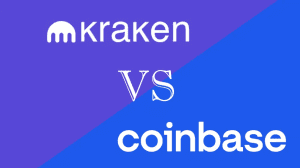Privacy Coins: What Are They and Are They Legal?

Privacy coins, a subset of cryptocurrencies, have gained attention for their emphasis on anonymity and enhanced privacy features. In this comprehensive guide, we’ll explore what privacy coins are, how they function, their legal status, their degree of privacy, and their advantages and disadvantages. And we cover everything using simple English – no technical jargon.
Privacy Coins Explained – The Short Guide
Here’s the summarized version of our article:
- Privacy coins prioritize anonymity and enhanced privacy by employing advanced cryptographic techniques to hide user identities and transaction details.
- They use various cryptographic methods, including ring signatures, confidential transactions, stealth addresses, and zero-knowledge proofs.
- Their legal status of varies globally. Some countries, such as Japan, South Korea, Australia, and the UAE, have banned or heavily regulated them. In contrast, the USA generally allows them with regulatory oversight, while The EU is considering bans and restrictions.
- The most popular privacy coins include Monero (XMR), Zcash (ZEC), and Dash (DASH), each with its unique privacy-enhancing features.
- These cryptos offer enhanced anonymity, fungibility, security, and decentralization. However, they face regulatory scrutiny, exchange delisting, reduced adoption, and higher transaction fees.
What Is a Privacy Coin?
Privacy coins, often called anonymous cryptocurrencies, represent a subset of digital currencies designed primarily to enhance user privacy and transaction anonymity. They employ advanced cryptographic techniques to obscure the sender’s and receiver’s identities and the transaction amounts.
As a result, this heightened level of confidentiality ensures that financial transactions with privacy coins remain private and untraceable by external observers. Meanwhile, traditional cryptocurrencies like Bitcoin rely on a transparent ledger to record transactions.
How Privacy Coins Work
Privacy coins employ various cryptographic techniques to enhance the privacy and anonymity of transactions.
One of these techniques is using ring signatures, as exemplified by Monero. Ring signatures mix the sender’s transaction with others in the network, creating plausible deniability about the actual source of funds. Therefore, it makes it challenging for external observers to determine the origin of a transaction.
Another method is confidential transactions, as seen in cryptocurrencies like Elements (ELM). They hide the transaction amounts while still enabling verification, ensuring that outsiders cannot view the specific transfer value.
Stealth addresses, a feature cryptocurrencies like Bytecoin (BCN) use, further enhance privacy. These addresses generate unique, one-time addresses for each transaction, making it difficult for anyone to track the recipients of funds. Hence, even if someone were to know one of your addresses, they wouldn’t be able to link it to other transactions you’ve made.
Lastly, privacy coins like Zcash implements zero-knowledge proofs using zk-SNARKs (zero-knowledge succinct non-interactive arguments of knowledge). They allow the verification of transaction validity without revealing the transaction details. As a result, it ensures both privacy and security, as transactions can be confirmed as valid without disclosing sensitive information.
Legal Status of Privacy Coins
The legal status of privacy coins remains a subject of debate and varies from one jurisdiction to another. Some countries have banned or heavily regulated them due to concerns about their potential use in illegal activities, such as money laundering or tax evasion. Others have adopted a more permissive stance, viewing them as legitimate tools for preserving financial privacy.
Countries like Japan, South Korea, Australia, and the Emirate of Dubai in the UAE have all banned privacy coins over money laundering and organized crime concerns.
Meanwhile, they are still generally legal in the USA. However, regulatory agencies like the Financial Crimes Enforcement Network (FinCEN) have issued guidance that imposes certain reporting requirements on cryptocurrency exchanges and wallet providers.
Furthermore, the European Union has no outright ban on privacy coins. Yet, a recent leaked document revealed that the EU plans to prohibit financial institutions from accepting this form of cryptocurrency.
“Credit institutions, financial institutions, and crypto-asset service providers shall be prohibited from keeping …anonymity-enhancing coins”.
Excerpt from an EU legislative draft
Best Privacy Coins
The most popular private cryptocurrencies include:
- Monero (XMR): Renowned for its robust privacy features, Monero employs technologies like ring signatures and stealth addresses to obscure transaction details. That makes it difficult to trace the flow of funds.
- Zcash (ZEC): Zcash utilizes zk-SNARKs (zero-knowledge succinct non-interactive arguments of knowledge) to enable fully shielded transactions where sender, receiver, and transaction amounts remain confidential.
- Dash (DASH): Dash employs the CoinJoin technique to combine multiple transactions, effectively obfuscating the links between senders and recipients.
Is a Privacy Coin Actually Private?
While privacy coins offer significantly more privacy than transparent cryptocurrencies like Bitcoin, they are not entirely foolproof. Determined attackers or sophisticated analysis techniques can sometimes de-anonymize transactions, especially if users do not follow best privacy practices.
Additionally, regulatory pressures and exchanges’ Know Your Customer (KYC) requirements can reduce the privacy benefits of these coins.
Pros
- Enhanced Privacy: Privacy coins offer higher anonymity, making them attractive to users seeking confidential transactions.
- Fungibility: With privacy features, cryptos become more fungible as each unit is indistinguishable from another, ensuring equal value.
- Security: They often incorporate robust cryptographic techniques, enhancing security and protecting user identities.
- Decentralization: Many prioritize decentralization, reducing the risk of censorship and control by central authorities.
Cons
- Regulatory Scrutiny: Privacy coins face increased regulatory scrutiny and potential legal challenges.
- Exchange Delisting: As mentioned, some exchanges delist them due to regulatory concerns, limiting liquidity.
- Reduced Adoption: They may have limited adoption compared to more widely accepted cryptocurrencies.
- Transaction Fees: Using advanced privacy features can result in higher transaction fees and computational demands.
Frequently Asked Questions
Learn more about privacy coins.
Are privacy coins illegal?
The legal status of privacy coins varies by country. Some jurisdictions have banned or heavily regulated them due to concerns about their potential use in illegal activities, such as money laundering or tax evasion.
Can privacy coins be traced?
While a privacy coin offers enhanced anonymity, determined attackers or advanced analysis techniques can sometimes trace transactions. Additionally, regulatory compliance measures on exchanges can reduce privacy.
Why do some exchanges delist privacy coins?
Exchanges may delist privacy coins due to concerns about regulatory compliance, fearing legal consequences for facilitating potentially illicit activities.
Which privacy coin is the most private?
Monero (XMR) is often considered one of the most private cryptocurrencies due to its strong privacy features, including ring signatures and confidential transactions.
How can I ensure compliance when using privacy coins?
We recommend staying informed about the regulatory landscape in your jurisdiction, using reputable exchanges and wallets that follow KYC and AML procedures, and adhering to any reporting requirements mandated by local authorities. Additionally, using a privacy coin for legitimate and legal purposes is essential to maintain compliance.
Privacy Coins Definition – Last Words
Privacy coins have emerged as a subset of cryptocurrencies catering to users seeking enhanced anonymity and confidentiality in their transactions. While they offer advanced privacy features, their legal status, susceptibility to regulatory scrutiny, and exchange delistings have prompted a nuanced discussion within the cryptocurrency community.
Please note that cryptocurrency investments carry inherent risks. Therefore, it’s essential to conduct thorough research and seek professional advice before engaging in any financial transactions.





